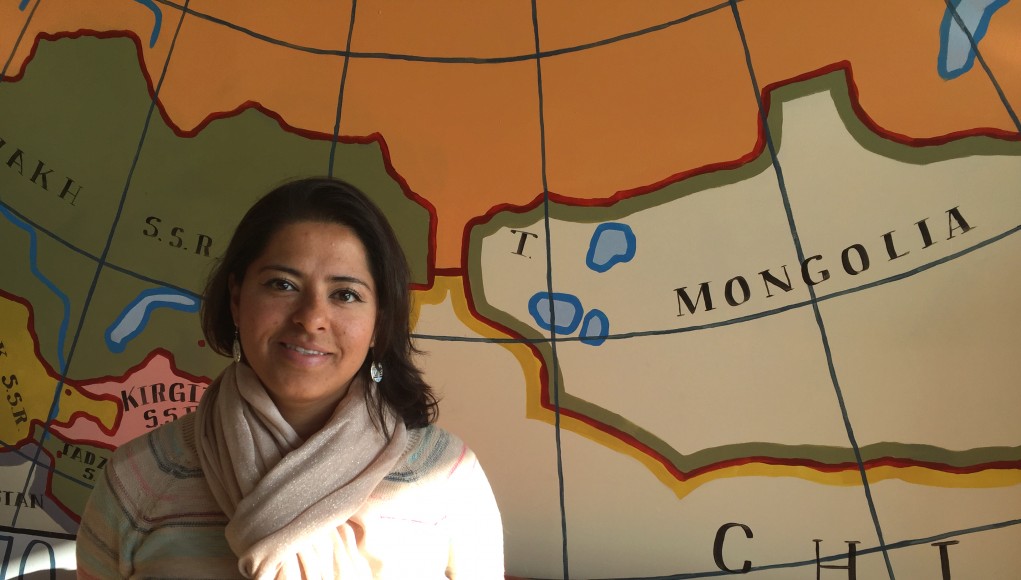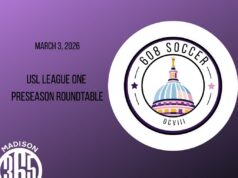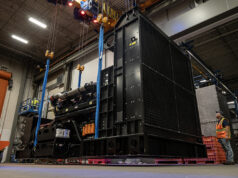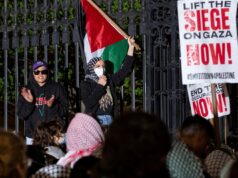Grisel Tapia Claudio is extremely active in the Latino community and has been a part of many ambitious endeavors but like many immigrants living in the United States, she goes about her business in a quiet way and assumes that nobody is watching.
So when Centro Hispano Executive Director Karen Menendez Coller called Tapia Claudio up on the phone recently to tell her that she was the winner of Centro’s 2015 Ilda Conteris Thomas Award, Tapia Claudio could not believe it.
“I’ve got to be honest with you, I was not expecting to get this award at all so I was really happy and really excited,” Tapia Claudio tells Madison365. “Of course, I was excited about the award, but I was even more excited because of the people who thought about me. That was incredible. This is humbling to me. I didn’t even realize that people knew what I was doing.”
Over 30 years ago, Ilda Conteris Thomas was the first-ever executive director at Centro Hispano, an agency on Madison’s south side that provides a multitude of services to Dane County’s rapidly growing Latino population. The award presented in her name honors an individual whose efforts ensure a strong Latino voice in the community. It will be presented to Tapia Claudio at the 26th annual Centro Hispano Banquet which will be held Nov. 20 at the Monona Terrace Community and Convention Center.

Tapia Claudio is the Latino Family Resource Center Program Coordinator at the Vera Court Neighborhood Center. “We provide Latino families with the resources that they need,” she says. “I have a lot of cases dealing with immigration issues. That’s the main topic that people are concerned with.”
The Latino Family Resource Center provides free legal advice the second Thursday of the month. “That is huge for our Latino population. So many of us don’t have resources and we don’t know our rights,” Tapia Claudio says. “Not just for immigration, but for issues like worker’s compensation and worker’s wages. We get taken advantage of all the time because people are afraid to speak up or they don’t know how to speak up.”
The Latino Family Resource Center also enables primarily Spanish-speaking families to secure housing, employment, and respond to issues in their family and community. Tapia Claudio first started at Vera Court as a volunteer computer instructor.
Outside of her work at Vera Court, Tapia Claudio has also been the volunteer coordinator and former member of the board of directors at Latinos United for College Education and Scholarships (LUCES), a nonprofit organization that works to ensure bright futures for young Latinos in Wisconsin by providing several merit– and need-based scholarships. She has also joined the Site Leadership Council at Nuestro Mundo, a dual-language public charter school part of the Madison Metropolitan School District (MMSD). She is the current president of the Nuestro Mundo board of directors.
Tapia Claudio is also the mother of three children currently in the MMSD including at LaFollette High School, Sennett Middle School, and Nuestro Mundo. “Finding time to do everything can be the challenging part between work, being a mom, and also contributing to the community. My priority is always my children,” she says. “Sometimes, I wish I could have more time during the day to do more stuff. It can be overwhelming. But I really enjoy it.”
As a past scholarship winner from both Centro Hispano and LUCES, Tapia Claudio knows what it’s like to get assistance and she knows how important it is to give back to the community. “Having been in a situation where I needed help, it feels good to be able to help others and that is what drives me to be involved in so many different community things,” she says.

Tapia Claudio was born in Puebla, Mexico and came to the United States as a teenager – she soon became a sophomore at Madison East High School – and she could not speak any English. “It was a whole new world for me – different culture, different language, and different weather – that I had to get used to,” she remembers.
Her mother came to Madison three years before Tapia Claudio did. “When I turned 15, my mother asked me: ‘Do you want a Quinceañera or do you want to come to the United States with me?’” Tapia Claudio remembers. “I didn’t even think. I was like, ‘I want to be with you!’”
Tapia Claudio has seen the Madison Latino population grow tremendously since she first came at the turn of the century.
“I remember when I first came to Madison there was only one Latino store where you could find spices for cooking and tortillas and all of that,” Tapia Claudio remembers. “Today, those grocery stores and restaurants are everywhere!”
Tapio Claudio is proud of the advancements that Latinos have made here in Madison and throughout the United States but she realizes that not all Americans share the same feelings on immigration. A certain particular Republican presidential candidate, for example, has made the vilification of undocumented Mexican immigrants his rallying cry.
“It’s so discouraging having been through the tough experiences that I have been through and watching first hand people go through all of these things now to have people be so mean. It does make me angry,” she says. “But, mainly, I think that those type of stereotypes are from people who have no idea what our immigrant families have to go through and how very hard we have to work.
“Yeah, it makes me pretty mad and angry to see people talking like that,” Tapia Claudio adds. “I think Trump should try to work like we work for a day or two to get an idea of what the everyday grind and hardships are like for an immigrant worker and an immigrant family. I bet he would never talk like that again.”
The naysayers remind Tapia Claudio how much work still needs to be done, but she’s ready to get at it.
“We always have much work to do,” smiles Tapia Claudio, who on top of everything previously listed is also the part of the executive committee for the Latino Education Council. “From the community perspective, I would love to see more immigration reform and the opportunity for immigrants to have driver’s licenses. I think it is a necessity for everybody to be safe and to be able to provide for their families.
“My hope for the future is that people can live freely and help contribute to Madison without having to live in constant fear [of deportation,]” she adds. “The shadows are a terrible place to live. To be afraid to speak because you never know how things are going to turn out. It’s something that I see every day. It hurts families; it hurts children. It doesn’t have to be that way. We’re not a threat. We’re here to support and we’re here to work and make this community better.”










